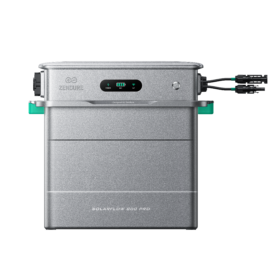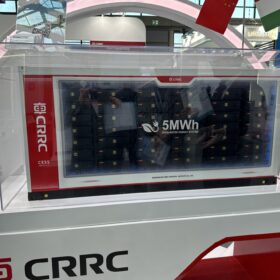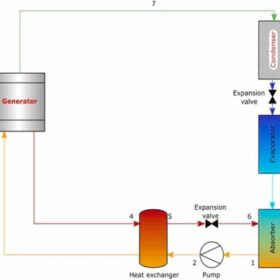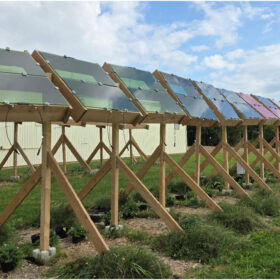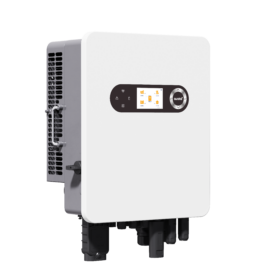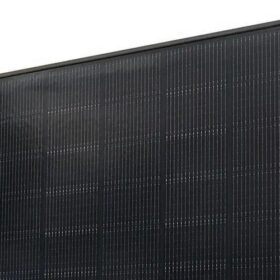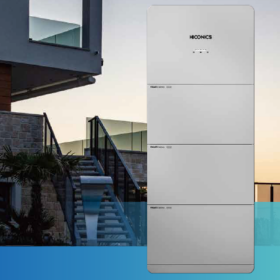Zendure launches new residential batteries
The US-based company unveiled a battery designed for balcony applications and a storage system for rooftop PV systems. Both products are AI-powered.
CRRC releases 5 MWh liquid-cooled energy storage system
The world’s largest rolling stock manufacturer says that its new container storage system uses LFP cells with a 3.2 V/314 Ah capacity. The system also features a DC voltage range of 1,081.6 V to 1,497.6 V.
PV-driven absorption cooling system for arid regions
Scientists in Saudi Arabia have simulated a solar-powered single-effect absorption cooling system that uses water-lithium bromide as a working fluid, under the environmental conditions of Riyadh. Exergy and exergy rates are calculated for each level of the system, with optimal generator performance being found to peak at 80 C.
Cadmium telluride vs. crystalline silicon in agrivoltaics
Researchers in Canada have compared strawberry growth under uniform illumination from semi-transparent thin-film cadmium telluride panels and non-uniform illumination from semi-transparent crystalline silicon modules. Their analysis considered metrics such as fresh weight, height, leaf count, chlorophyll content, soil temperature and humidity.
Austa launches low-voltage hybrid inverter series
The single-phase inverter series can take between 4.5 kW and 12 kW of PV input and convert it to an AC output of 3 kW to 8 kW. The new products feature a maximum efficiency of 97.6%.
Ultra-short-term PV forecasting based on convolutional neural network, long short-term memory
Scientists have created a novel probabilistic model for 5-minutes ahead PV power forecasting. The method combines a convolutional neural network with bidirectional long short-term memory, attention mechanism, and natural gradient boosting.
Viridian Solar launches 23.6%-efficient TOPCon BIPV panel
The UK company says the new modules have a rated power output of 445 W and can reportedly guarantee a power yield of 95% after 10 years.
Midea Hiconics presents new three-phase residential storage systems
The company said its new Hienergy Series G2 product has a PV input ranging from 10 kW to 30 kW and storage capacity spanning from 5 kWh to 20 kWh. Maximum efficiency is rated at 97.5%.
How much time do homeowners spend acquiring a rooftop PV system
Scientists have conducted a survey and analyzed transaction costs of residential PV projects. They focused on the time spent searching for and assessing information, as well as the time spent on aspects related to financing, permits, and contracts. Scoping information was the most time-consuming task.
How to identify interruption of ribbons in solar modules
Scientists in Spain have investigated the total or partial interruptions of ribbons that connect solar cells in modules and have proposed a classification based on their type and location.
